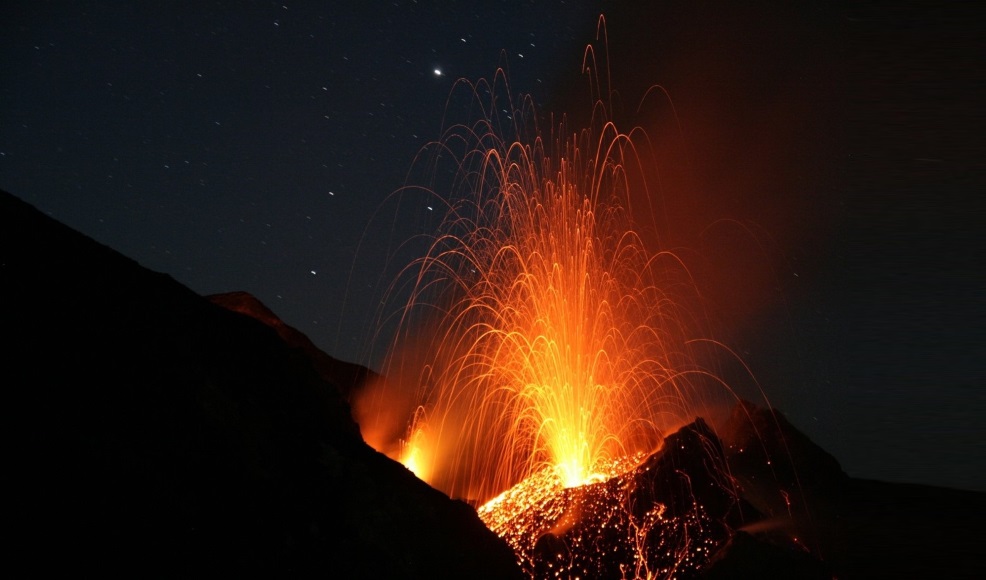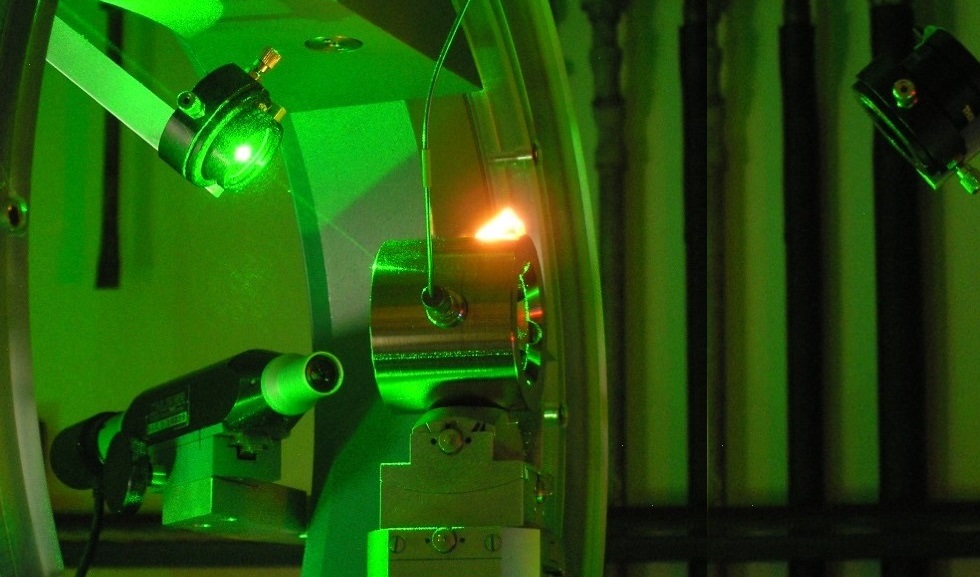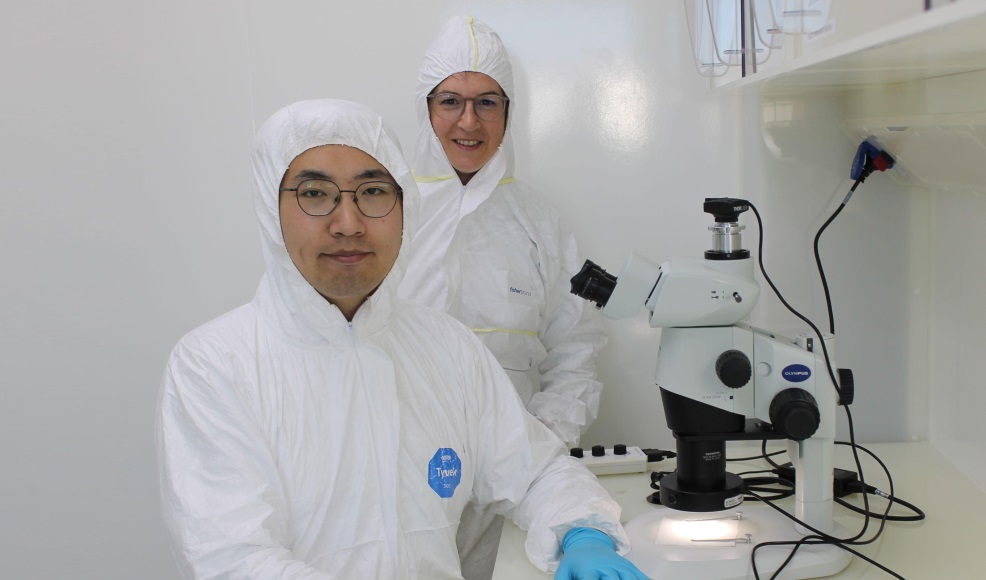
photo by vulkane.net
Nighttime eruption on the volcano of Stromboli. Studying volcanic eruptions in the laboratory is one important branch of experimental geosciences (photo: Marc Szlegat)
Why studying experimental geosciences?

A high-pressure experiment using a diamond cell and laser radiation in our laboratories. Such experiments are used to understand the properties of materials under the extreme conditions prevailing in Earth´s deep interior
The M.Sc. program ‘Experimental Geosciences’ is centered on the expertise of the Bayerisches Geoinstitut (BGI). BGI is a central research facility at the University of Bayreuth and one of the leading institutes in research and training in experimental geochemistry and geophysics worldwide. The institute has also strong expertise in cosmochemistry and materials science research. Many key questions of modern Earth and planetary science can only be addressed by experiments in the laboratory. Most of the Earth´s interior cannot be directly observed. However, experiments in the laboratory allow us to simulate the processes occurring during earthquakes, volcanic eruptions, and the motion of tectonic plates. They can also yield insights into the early evolution of our planet beyond the record provided by rocks in the field. Experimental studies also help us to understand how critical metals become enriched to economic deposits and provide guidance in the search for new deposits.

Ran Zhao and Audrey Bouvier studying Lunar rocks in the ultra-clean cosmochemical laboratories of Bayerisches Geoinstitut. These laboratories are so advanced that even samples from the NASA Apollo missions to the Moon have been sent here for analysis.